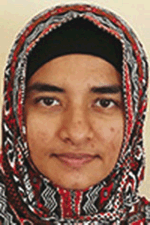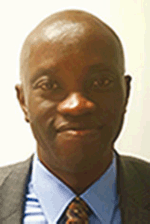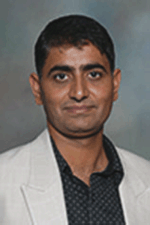Exergy analysis of an ethylene refrigeration cycle integrated with a NGL recovery process for a large LNG train
Nazreen Begum Najibullah Khan A B , Ahmed Barifcani A C , Moses Tade A and Vishnu Pareek AA Curtin University.
B University Malaysia Pahang.
C Department of Petroleum Engineering.
The APPEA Journal 56(2) 606-606 https://doi.org/10.1071/AJ15112
Published: 2016
Abstract
The natural gas liquefaction process consists of a sequence of refrigeration cycles that consumes a considerable amount of energy. The separation of natural gas (NG) from the natural gas liquids (NGL) is considered to be one of the significant parts in the liquefaction of natural gas, as this will influence the LNG product quality. The integration of NGL section with the liquefaction process is one of the fundamental ways to improve the efficiency of the process and provide economic benefit from operating and capital cost perspectives.
In this extended abstract, two different configurations of NGL section integrated with the ethylene refrigeration cycle for the Cascade LNG plant—processing 5 million tonnes per annum (MTPA)—are proposed. The objectives of the proposed concepts are to meet the LNG higher heating value (HHV) specification and to achieve minimum power consumption for the refrigeration cycle. Exergy analysis is used as a thermodynamic tool to evaluate the efficiency of the process.
The process was simulated using Aspen HYSYS and the results of the proposed configurations are presented and analysed. The proposed configurations can be used to produce LNG and NGL with minimum energy consumption.

Nazreen Begum Najibullah Khan completed her BSc (chemical engineering) degree from University Teknologi Mara (Malaysia) in 2007. She commenced her PhD research in natural gas processing at Curtin University, in September 2013. Nazreen received a scholarship from the Ministry Higher of Education Malaysia and University Malaysia Pahang, Malaysia, to pursue her postgraduate study. |

Ahmed Barifcani received his bachelor degree, masters and PhD in chemical engineering from University of Birmingham, UK. He is Associate Professor at Curtin University. He is also Fellow member of IChemE (FIChemE) and CSi of the Institution of Chemical Engineers. Ahmed has more than 30 years of industrial experience in operation, design, engineering, construction and project management in the fields of oil refining, gas processing, LNG and petrochemicals. He has 10 years’ experience at Curtin University in doing research on CO2 capture, hydrates flow assurance, gas separation processes and MEG recovery research. He is also teaching undergraduate courses in petroleum engineering and supervising chemical engineering design and research projects. Additionally, Ahmed is also supervising PhD students in chemical engineering, petroleum engineering and at the corrosion centre. |

Moses Tade received his bachelor degree in chemical engineering with first class honours from the University of Ife (now Obafemi Awolowo University), Ile-Ife, Nigeria. He was awarded the prestigious Commonwealth Scholarship for his masters and PhD in chemical engineering at Queen’s University, Kingston, Ontario, Canada. Moses joined Curtin University as a Lecturer and earned the Personal Chair of Process Systems Engineering in 1999. He was the Head of Chemical Engineering from 2001–07 and then the Dean of Engineering from 2008 to November 2014. Moses became the Deputy Pro Vice Chancellor, Faculty of Science and Engineering in December 2014 and was awarded a John Curtin Distinguished Professor at Curtin University in 2012 for his significant contributions to chemical engineering research in the field of process systems engineering. He has also received substantial funding from both industry and the Australian Research Council (ARC) for his projects. He has successfully supervised more than 30 PhD students, several masters’ students, and research fellows. Moses has published four books on various aspects of his work as well as more than 250 research papers in refereed international journals and conference proceedings. Moses is a Fellow of IChemE and an Honorary Fellow of Engineers Australia, and was listed in the Top 100 Most Influential Engineers in 2008.߬ He is presently the President of the Australian Council of Engineering Deans (2015 and 2016) and a member of the ARC College of Experts (from 2014–16). |

Vishnu Pareek received his BE Hons (Rajasthan), MTech (IIT-Dehli) and PhD in chemical engineering from (UNSW), Australia. He is the Professor and Head of School of Chemical and Petroleum Engineering at Curtin University. |
References
Brostow, A. A., And Roberts, M. J. (2013). Integrated NGL recovery in the production of liquefied natural gas. USA Patent No US 20130061632A1.Cho, J., Vega, F. D. L, Kotzot, H., and Durr, C. (2005). Innovative gas processing with various LNG sources. LNG journal , 23–27.
Elliot, D., Qualls, W., Huang, S., Chen, J., Lee, R., Yao, J. And Zhang, Y. (2005). Benefits of integrating NGL extraction and LNG liquefaction technology. AIChE Spring National Meeting, Conference Proceedings, Cincinnati, Ohio, 30 October–4 November, 1943–1958.
Finn, A. J, Johnson, G. L., and Tomlinson, T. R. (1999). Developments in natural gas liquefaction. Hydrocarbon Processing 78, 1–18.
Kanoglu, M. (2002). Exergy analysis of multistage cascade refrigeration cycle used for natural gas liquefaction. International Journal of Energy Research 26, 763–774.
Mehrpooya, M., Hossieni, M., and Vatani, A. (2014). Novel LNG-based integrated process configuration alternatives for coproduction of LNG and NGL. Industrial & Engineering Chemistry Research 53, 17 705–17 721.
Moran, M. J. (2011). Fundamentals of engineering thermodynamics. Hoboken, New Jersey: Wiley.
Spilsbury, C., Mclauchlin, S., and Kennington, B. (2005). Optimising the LNG liquefaction process. LNG journal , 40–43.


